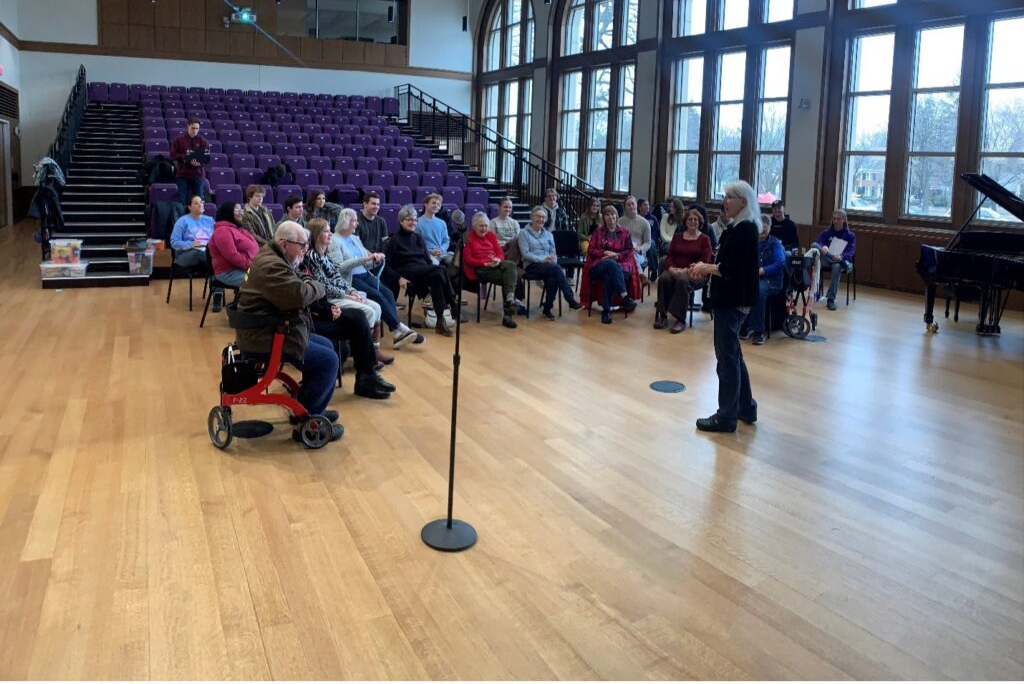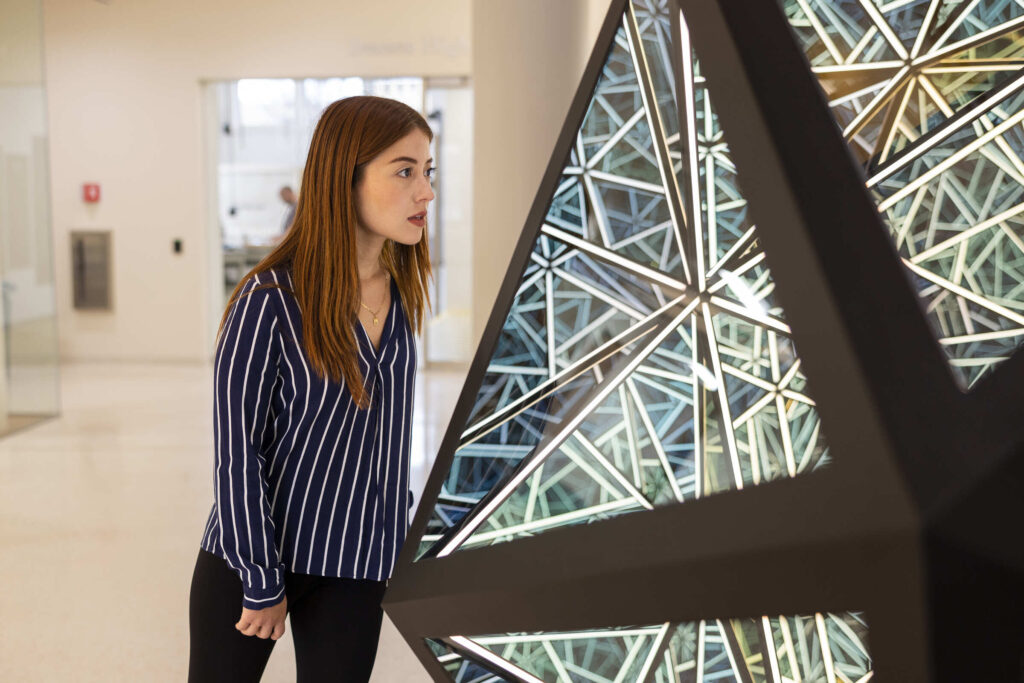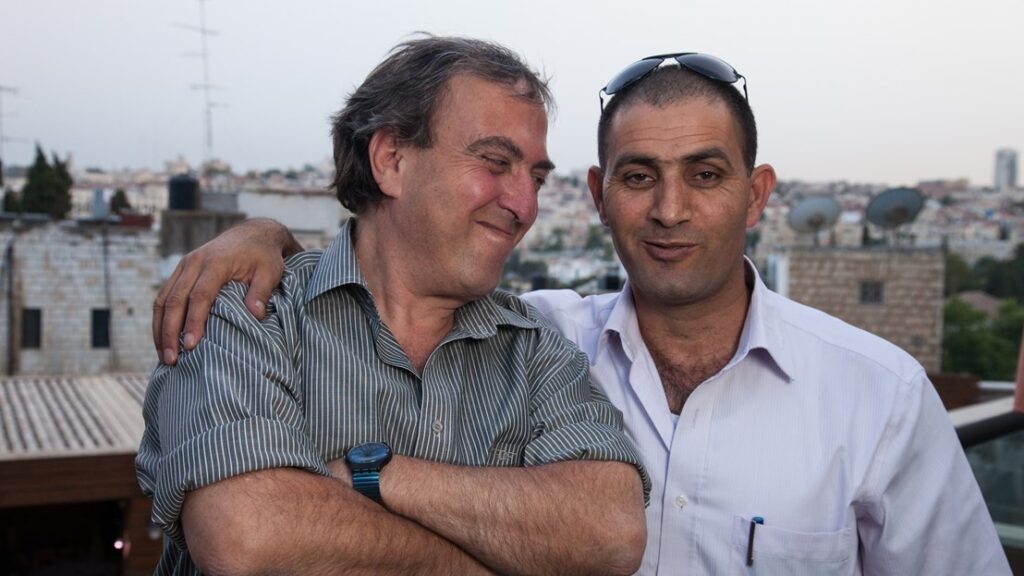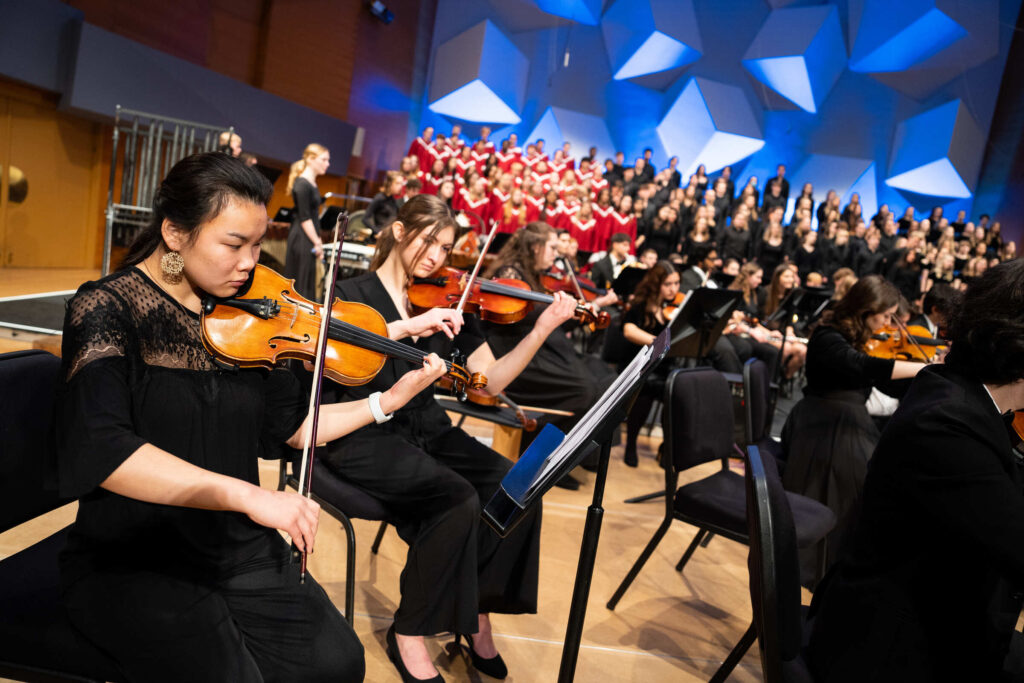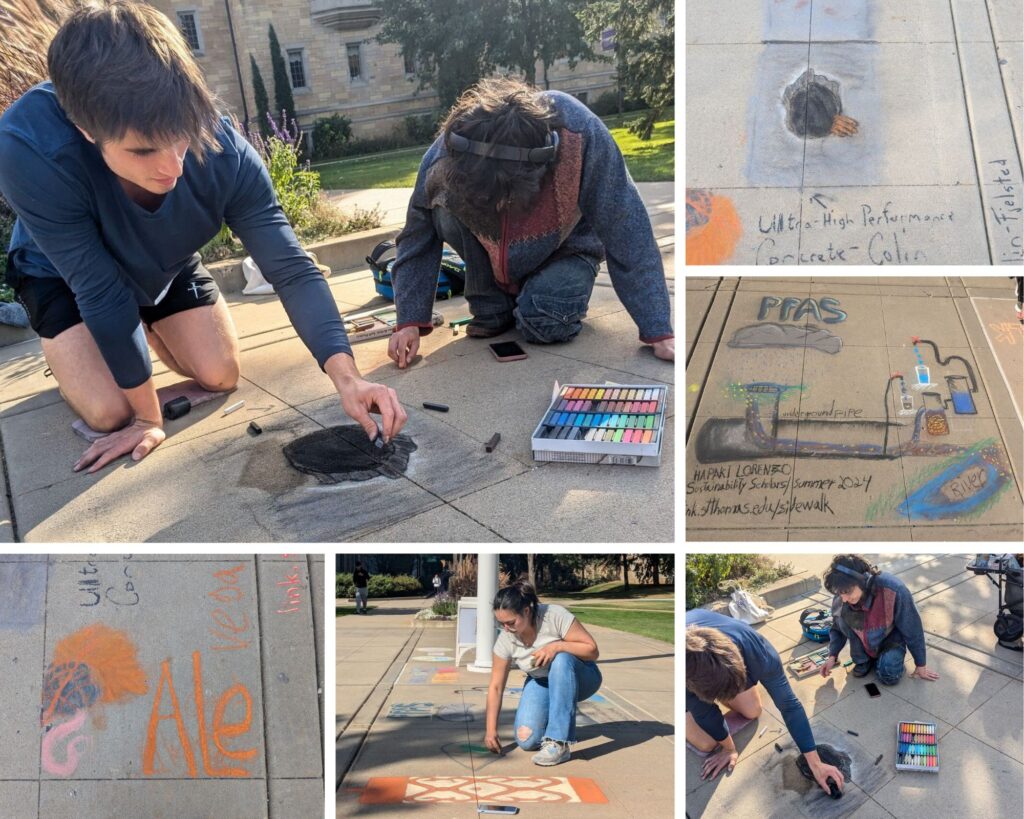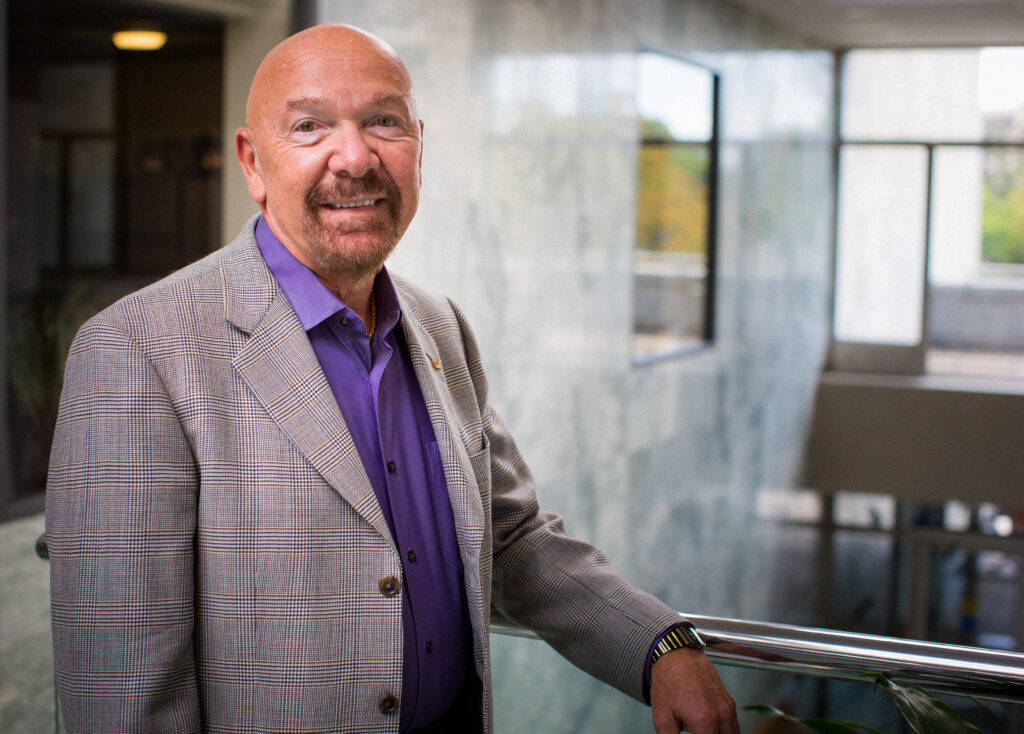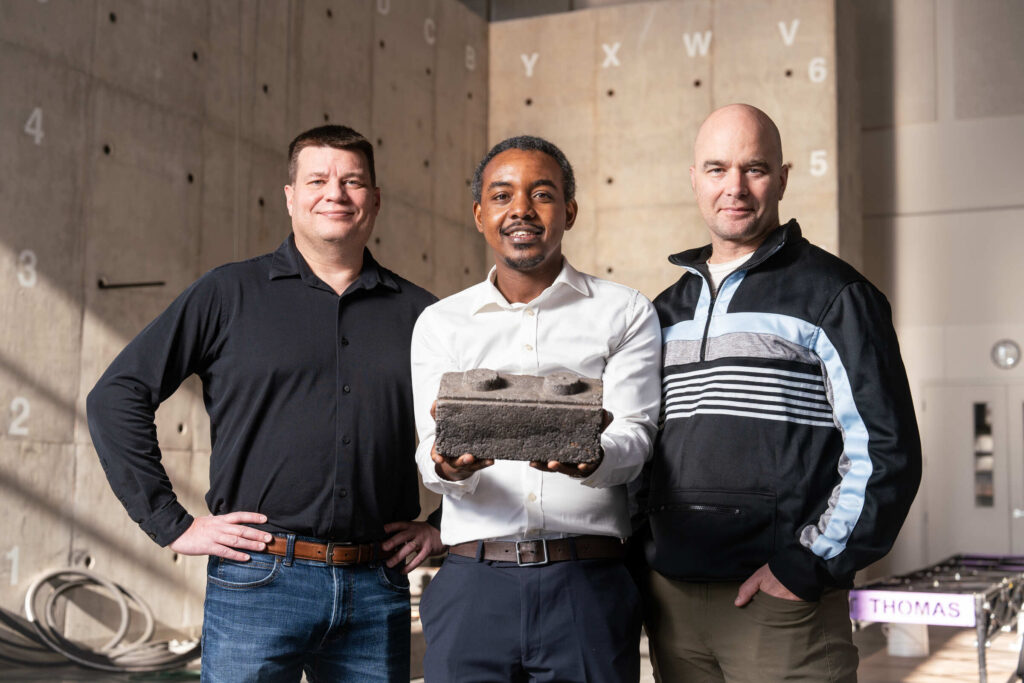Tommies enrolled in MUSC 230: Music of the United States, taught by Professor Sarah Schmalenberger, had the unique opportunity fall semester to engage in an intergenerational collaboration with residents at Episcopal Homes, a senior living community in St. Paul. This experiential learning partnership, part of the Academic Community Engagement (ACE) initiative at the University of St. Thomas, allowed students to explore music’s role in shaping personal identity and collective memory across generations.
Throughout the semester, students and residents shared their musical histories and personal narratives, building meaningful connections through their mutual appreciation of music.
Collaboration and community partnership
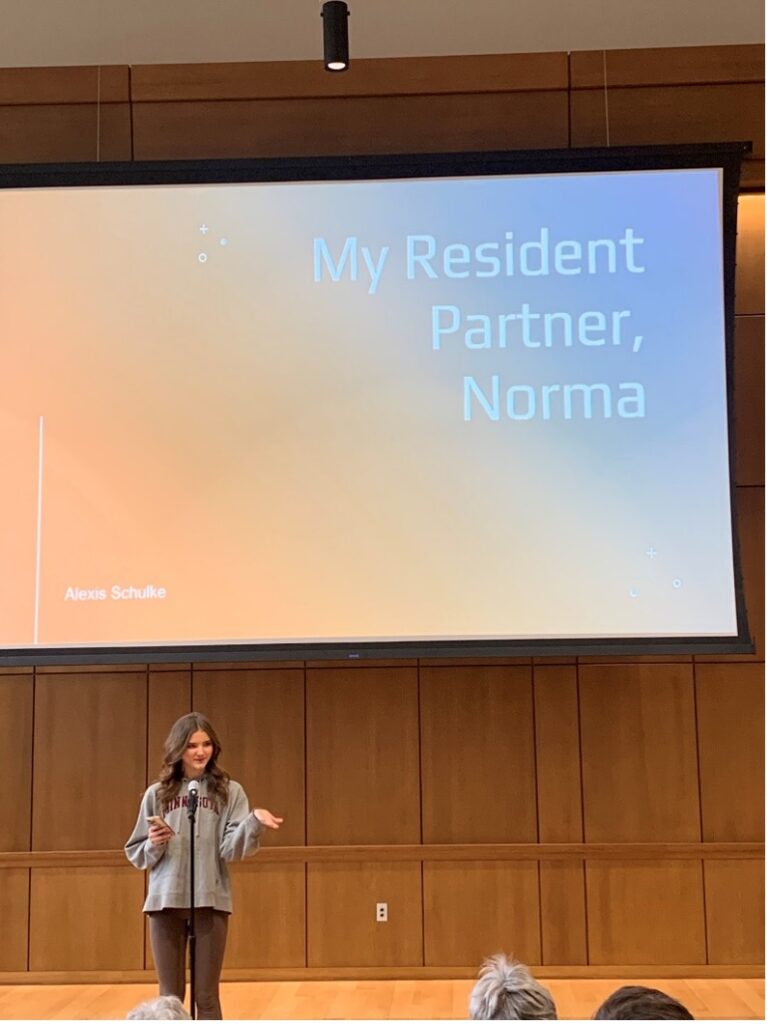
Through this collaboration, students gained firsthand insights into how music serves as a historical marker, a source of personal connection, and a unifying force across different life experiences.
“This class was really meaningful for me because it gave me the chance to connect with an older generation and see our similarities and how we differ from each other,” said student Alexis Schulke. “My resident partner, Norma, was the sweetest partner. She made me homemade treats when I came and visited, and we bonded over our music tastes, which were surprisingly very similar. Listening to her stories about her favorite songs and what was happening in her life when she first heard them opened my eyes to how impactful music can be, and how at no matter what age, the memories will forever stay with you, along with the music. She reminded me how music can bring people together in such a special way.”
The collaboration began with two large group meetings at Episcopal Homes, where students were paired with resident volunteers who had expressed interest in participating. These initial gatherings introduced the broader themes of the project, encouraging students and residents to discuss songs that held personal or generational significance.
Following these group discussions, students scheduled one-on-one visits with their partners, providing additional time for listening sessions and deeper conversations about their favorite music. These visits became a cornerstone of the collaboration, fostering trust and a sense of camaraderie between students and residents.
The value of intergenerational engagement
For Schmalenberger, incorporating intergenerational engagement into a music history course was an intentional pedagogical choice. “I thought it was important for students to engage with older generations and discover how music always serves as a kind of soundmark of human experience,” she said. “Whether student or resident, everyone discovered similarities in the music that was meaningful in their early adult years. And I think that closed some gaps in socialization.”
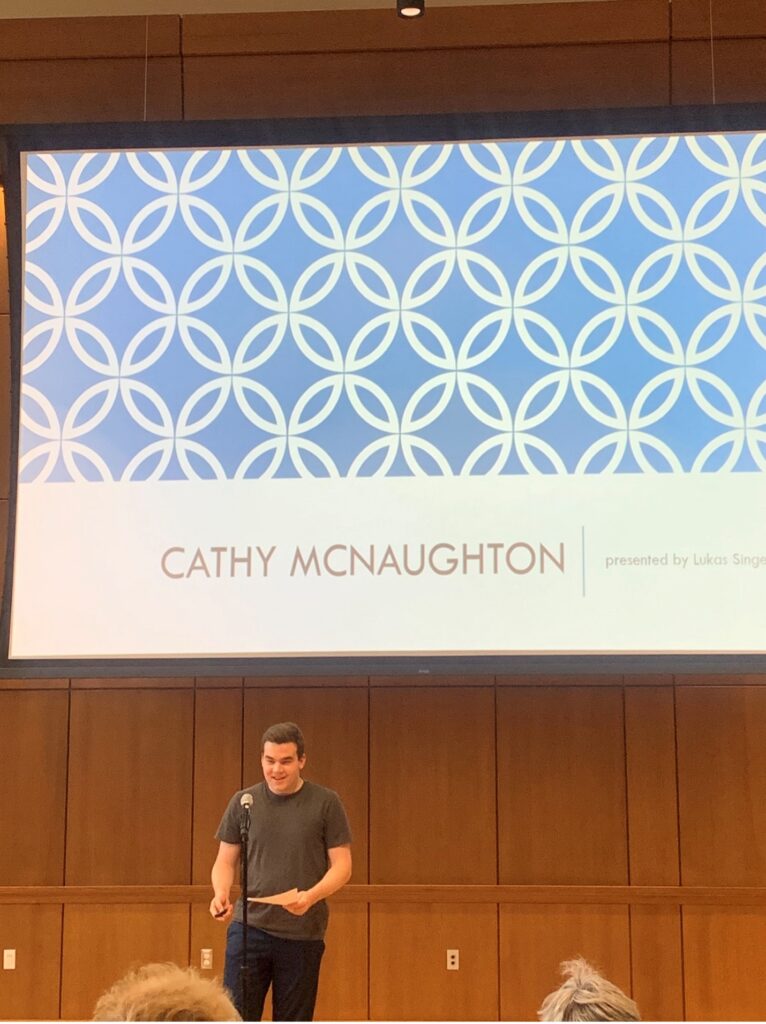
The ability to share lived experiences through music enriched students' understanding of its historical and cultural significance. It also challenged assumptions about musical preferences across generations, allowing participants to recognize unexpected commonalities in their listening habits and emotional connections to music.
While the course was rooted in music history, the true impact of the collaboration was in the relationships formed between students and residents. Many students expressed appreciation for the opportunity to engage in personal storytelling and meaningful conversations that extended beyond the classroom.
“For both partner groups, I think it was the genuine appreciation and even joy of connecting over a mutual love for music,” Schmalenberger said. “Talking about a favorite song led to stories — and story-swapping — about important times in their lives.”
When several students attended a choir concert performed by residents at Episcopal Homes, it reinforced the idea that musical engagement is a lifelong experience, and it was an act of support and appreciation for the friendships they had built.
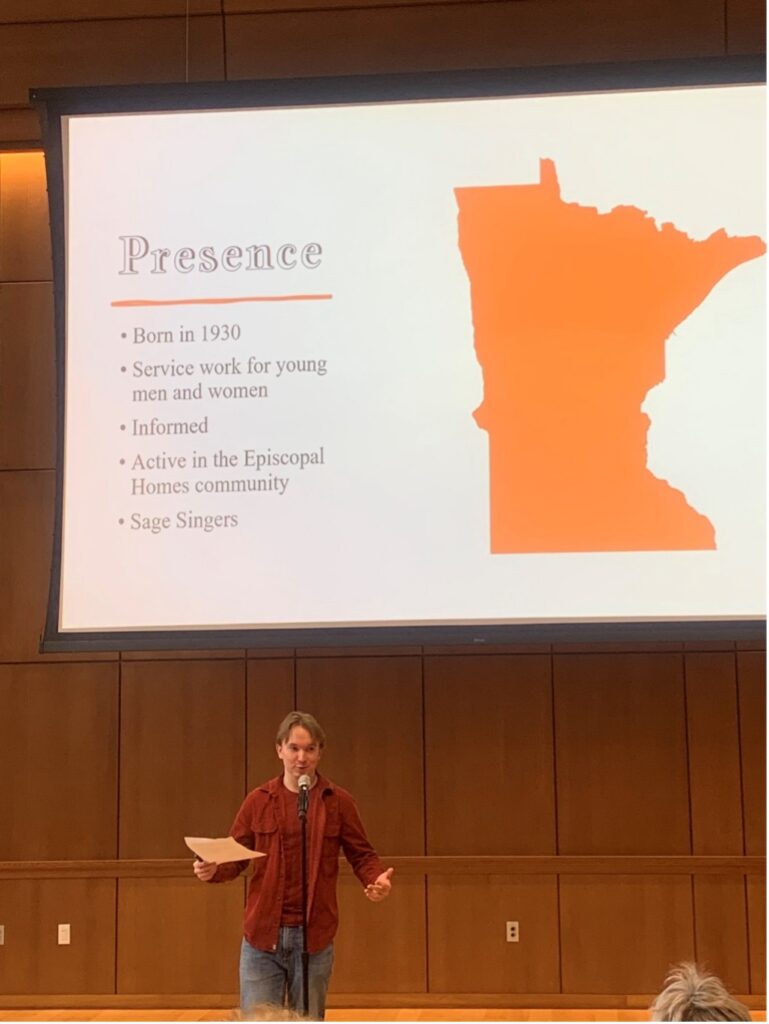
Final reflections and course culmination
The final course gathering was a special celebration of both music and human connection. Resident partners were invited to the new concert hall in the Schoenecker Center, where students presented short PowerPoint reflections on their partners and the insights they had gained throughout the collaboration. Each student also wrote a private letter of thanks to their partner, expressing gratitude for the shared experience.
For Schulke who was partnered with Norma, she shared, "I cherish the friendship we started through this course, and I still message her to this day to share updates on my life, such as pictures from my study abroad experience or sharing new tunes that I discovered."
To mark the course culmination, attendees enjoyed cookies and sparkling juice, turning the event into a heartfelt closing celebration.
Schmalenberger emphasized the significance of this moment: “To have this opportunity to not just acknowledge but also celebrate the lives of these residents was truly special.”
Fostering academic community engagement
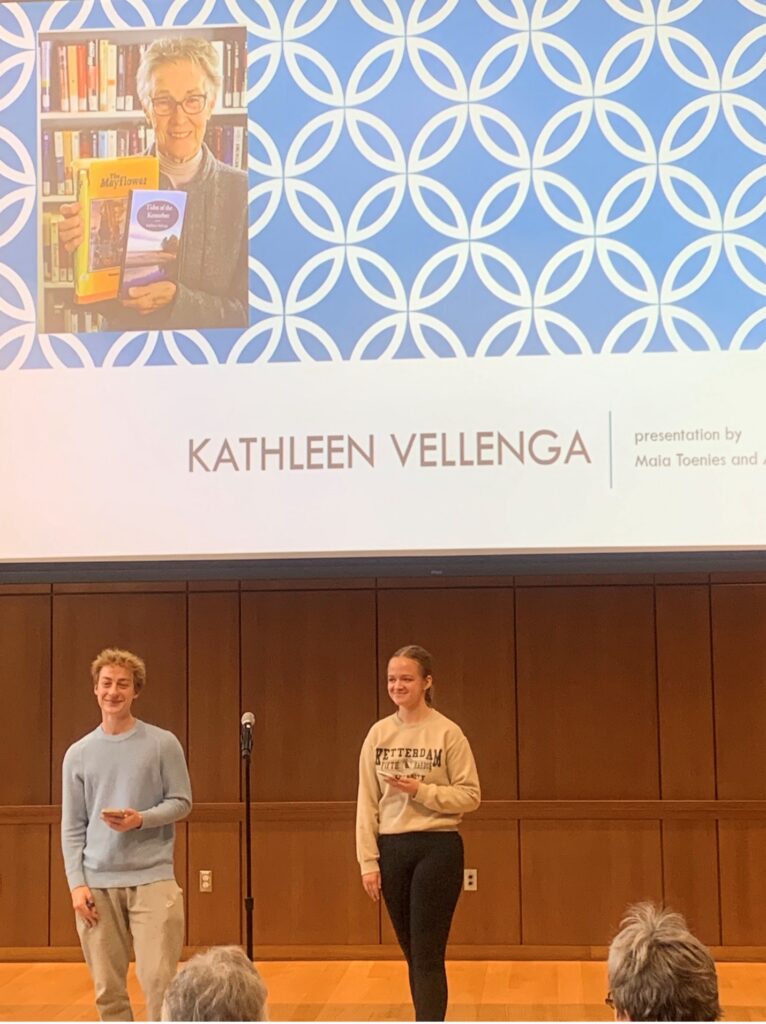
MUSC 230 was one of several Academic Community Engagement (ACE) courses that partnered with Episcopal Homes during the fall 2024 semester. The ACE Initiative, coordinated by the Center for the Common Good, integrates community-based learning into academic coursework, fostering mutually enriching experiences for students and community partners.
Those interested in learning more about course collaborations can contact ACE@stthomas.edu. To explore ways to support St. Thomas' Age-Friendly Campus Initiative, individuals may reach out to Tanya Rand and Bob Shoemake, who are leading efforts to promote intergenerational learning and community-building opportunities.
